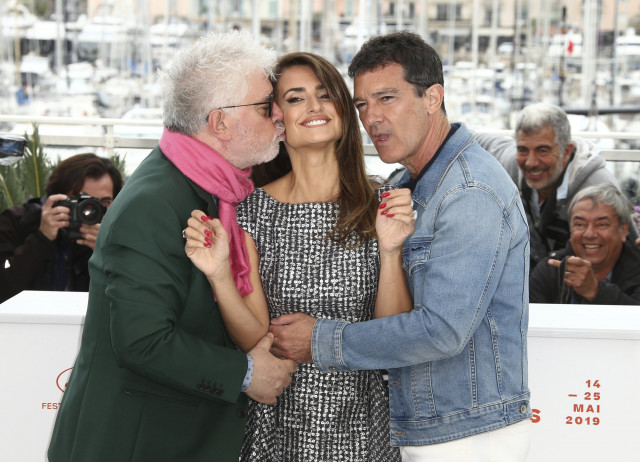 Ukraine reports 5,276 new COVID-19 cases
Ukraine reports 5,276 new COVID-19 cases
 Zelensky: Every third Ukrainian considers road construction one of greatest achievements of 2021
Zelensky: Every third Ukrainian considers road construction one of greatest achievements of 2021
 Ukraine ready to implement Minsk agreements, but Russia's desire needed - Yermak
Ukraine ready to implement Minsk agreements, but Russia's desire needed - Yermak
 Michel: EU unanimously agree to roll over economic sanctions against Russia
Michel: EU unanimously agree to roll over economic sanctions against Russia
 Actions by Ukraine's partners will help prevent worst-case scenario - Zelensky
Actions by Ukraine's partners will help prevent worst-case scenario - Zelensky
 COVID-19 in Ukraine: Health officials confirm 8,899 daily cases as of Dec 17
COVID-19 in Ukraine: Health officials confirm 8,899 daily cases as of Dec 17
 Macron tells Zelensky he declared support for Ukraine in call with Putin
Macron tells Zelensky he declared support for Ukraine in call with Putin
 Zelensky, Scholz discuss gas transit through Ukraine after 2024
Zelensky, Scholz discuss gas transit through Ukraine after 2024
 Ukraine ready for any format of talks with Russia - Zelensky
Ukraine ready for any format of talks with Russia - Zelensky
 Ukraine’s only journalist in Russia facing extremism charges - lawyer
Ukraine’s only journalist in Russia facing extremism charges - lawyer
 PM Shmyhal: First two applications for investment projects worth $96 million filed
PM Shmyhal: First two applications for investment projects worth $96 million filed
 Zelensky, PM of Italy discuss security situation around Ukraine
Zelensky, PM of Italy discuss security situation around Ukraine
 President signs off State Budget 2022
President signs off State Budget 2022
 London considering all options for responding to Russia's aggression against Ukraine
London considering all options for responding to Russia's aggression against Ukraine
 Putin, Biden to hold another round of talks
Putin, Biden to hold another round of talks
 Some 260,000 Ukrainians “victims of human trafficking” over 30 years - prosecutor general
Some 260,000 Ukrainians “victims of human trafficking” over 30 years - prosecutor general
 Ukraine plans to create center to protect energy infrastructure from cyber attacks
Ukraine plans to create center to protect energy infrastructure from cyber attacks
 No clear idea so far when Normandy Four top diplomats set to meet - German Ambassador
No clear idea so far when Normandy Four top diplomats set to meet - German Ambassador
 Ukraine receives EUR 600M in macro-financial assistance from EU
Ukraine receives EUR 600M in macro-financial assistance from EU
 Zelensky holds phone conversation with PM of Israel
Zelensky holds phone conversation with PM of Israel
 Ukraine sets new daily COVID vaccination record
Ukraine sets new daily COVID vaccination record
 MFA: European Union has not yet removed Ukraine from list of safe countries
MFA: European Union has not yet removed Ukraine from list of safe countries
 Kyiv records 1,023 new COVID-19 cases, 29 deaths
Kyiv records 1,023 new COVID-19 cases, 29 deaths
 G7 ambassadors welcome adoption of law on NABU status
G7 ambassadors welcome adoption of law on NABU status
 Ukraine can increase Covid vaccination rates to 1.5M a week – Liashko
Ukraine can increase Covid vaccination rates to 1.5M a week – Liashko
History could be made when the top award of the Cannes Film Festival, the Palme d’Or, is handed out Saturday.
The Palme d’Or is decided by a nine-person jury, headed this year by the filmmaker Alejandro Inarritu. Their deliberations are done in secret, so what will win is always a guessing game.
But milestone victories could occur if some of the festival’s most acclaimed films were to win. If French director Celine Sciamma’s period love story “Portrait of a Lady on Fire” won, it would be the first time a female filmmaker has won the Palme d’Or outright. Sciamma’s movie, about two women in 18th century France, has been hailed as feminist masterpiece.
The only previous female director to win the prestigious Palme d’Or in the festival’s 72-year history was Jane Campion in 1993 for “The Piano.” She tied with Chen Kaige’s “Farewell My Concubine.” The only other time a woman has won the Palme d’Or was in 2013 when the award for “Blue Is the Warmest Color” was shared between director Abdellatif Kechiche and actresses Leya Seydoux and Adèle Exarchopoulos.
Sciamma is a 40-year-old writer-director who helped found 50/50X2020, France’s version of Time’s Up. She said in an interview that a Palme win for “Portrait of a Lady on Fire” would be a larger victory for women.
“It would mean a lot for a lot of people,” she said. “That would be the most important.”
Pedro Almodovar could make personal history by winning the Palme for “Pain and Glory.” Though he’s been one of Europe’s pre-eminent filmmakers for decades, the 69-year-old Spanish director has never won Cannes’ top award despite being in the running five times before. “Pain and Glory,” a self-reflective drama starring Antonio Banderas as a fictionalized version of Almodovar, was received as the filmmaker’s best work in years.
Also in the mix is Bong Joon-ho’s class satire “Parasite,” about a poor family of hustlers who find jobs with a wealthy family. Two years ago, Bong was in Cannes’ competition with “Okja,” a movie distributed in North America by Netflix. After it and Noah Baumbach’s “The Meyerowitz Stories” (also a Netflix release) premiered in Cannes, the festival ruled that all films in competition needed French theatrical distribution. Netflix has since withdrawn from the festival.
A win for “Parasite” would mark the first Korean film to ever win the Palme d’Or.
Last year’s awards in Cannes saw Hirokazu Kore-eda’s “Shoplifters” triumph and Italian director Asia Argento declare from the stage: “I was raped by Harvey Weinstein. The festival was his hunting ground.” Weinstein, who has denied sexually assaulting Argento, was for decades a prominent presence in Cannes, which has had its struggles in adapting to the post-MeToo era.
This year, bowing to pressure from 5050x2020, the festival released gender breakdowns of its submissions and selections. Cannes said about 27 percent of its official selections were directed by women. The 21-film main slate included four films directed by women, which ties the festival’s previous high. Mati Diop, the French-Senegalese director, became the first black woman in competition in Cannes with her feature debut “Atlantics.”
The 72nd Cannes has had its share of red-carpet dazzle, too. Elton John brought his biopic “Rocketman” to the festival, joining star Taron Egerton for a beachside duet after the premiere. And Quentin Tarantino unveiled his 1960s Los Angeles tale “Once Upon a Time ... in Hollywood,” with Brad Pitt and Leonardo DiCaprio, 25 years after the director’s “Pulp Fiction” won the Palme d’Or.
Tarantino is holding out hope that he might win again. His movie did on Friday win the annual Palme Dog, an award given by critics to the festival’s most memorable canine. Pitt’s character has a loyal pit bull in the film.
“We will see what we will see,” said Tarantino, accepting the award Friday. “But at least I won’t go home empty handed.”

















































































































































